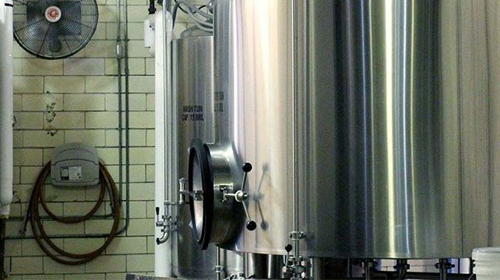Nandanvan, Nagpur, Maharashtra
- GST NO. : 27AAHCD6589P1ZN
Technical Applications
Many Technical Applications Benefit From Lecithin
With its strong separating effect and good emulsifying and dispersing properties, lecithin can also be of great help in industry, improving products and optimising work processes.
Industrial Applications
Adhesives, Absorbents, Animal Feeds, Absorbents, Cosmetics and Soaps, Detergents, Dust Control, Fertilizers, Inks, Leather, Metal Processing, Paint and Coatings, Paper, Pesticides, Petroleum / Oil, Polymers / Rubber, Textiles
Detergents
Detergents and fabric softeners containing lecithin give textiles made of wool, cotton, synthetics and mixed fabrics a pleasantly soft and fluffy feel, even in hard water.
In its capacity as natural quaternary, lecithin allows the reduction or even elimination of synthetic quaternaries or other cation-active plasticizers and thus meets the ecological requirements of consumers.
Paints And Varnishes
In paints and lacquers, lecithins control the rheological properties, viscosity, flow properties and spreading ability. This applies both to solvent-based and water-based systems and to printing inks. Lecithin plasticises protective coatings and improves their removal.
Crude Oil Products
In lubricants and hydraulic fluids, the plasticising and dissolving properties of lecithin interact to regulate viscosity and flow behaviour. The viscosities of mixed paraffin/naphthene-based oils can thus be reduced by lecithins and the flow properties improved.
Lecithin can substitute completely or partially the synthetic triphosphate esters, the classical softeners for lubricants.
Synthetic Materials
As an extender (secondary plasticizer), Lecithin reduces the flow anomalies that are strongly pronounced in PVC plastisols. It prevents agglomerations, improves plasticity and adhesive properties of the plastisols.
As a natural plasticiser, lecithin can partially replace synthetic primary plasticisers and synthetic extenders. The antistatic properties and the sliding effect of lecithin are appreciated as positive side effects.
Rubber
Lecithin is compatible with most rubber varieties. As plasticiser, it increases the miscibility, as elasticiser, the tensile strength. These properties are particularly valuable in the processing of waste rubber, especially from an ecological point of view.
Paper
Lecithin is used both in paper production and in paper finishing. It makes paper supple, absorbent and gives it the ability to be calendered. In coating compounds, lecithin improves the rheology. A reduction in viscosity allows a higher proportion of solids with better spreading ability and increased coating speed.
Adhesives
Lecithin improves the flexibility of natural and synthetic-based adhesives and reduces viscosity. In many cases, lecithin also helps to improve adhesion.
Explosives
Lecithin ensures a high degree of explosiveness with simultaneously increased handling safety. This is due to the plasticising and dispersing properties of the substance, which complement each other. A reduction in viscosity allows higher levels of inorganic and organic nitrates.
Plant Protection Products
Enriched phospho-lipids are becoming increasingly important in crop protection products. They are used to improve the bonding of the active ingredient with water. The use of phospho-lipids improves the effectiveness of fertilisers and pesticides, while, at the same time, reducing the amount of toxic active ingredients and thus reducing the stress on the environment.
Leather Care
Leather care is one more technical application of lecithin. Here it is valued as a component of fatliquors.
Chemical-Technical Products
Lecithin has become indispensable in various formulations:
Plasticine and modelling clay
Lecithin improves the plastic properties more than castor oil, mineral oil or poly-alcohols. In doing so, it remains food safe and is in no way harmful to health. These properties predestine lecithin for use in toys and children's products.
Ballpoint Pens And Highlighters
Particularly in combination with poly-alcohols or PVP, lecithin can decisively improve the flow properties. The softening and dissolving properties mean that the flap of highlighters, for instance, can remain open for hours without affecting the function of the pen.
Carbon-Less Copy Films
Lecithin increases plasticity and improves the adhesion of adhesive layers between film and transfer layer.
Underbody Protection
In resin-based preparations, the addition of lecithin improves plasticity and adhesion.
Environmental Technology
In this area, lecithin benefits from its excellent compatibility and freedom from harmful substances:
Packaging
Bio-compatible, i.e. edible packaging, in principle, for pharmaceuticals or food items, benefit from good flow properties and the resulting increased flexibility, when lecithin is added to them.
Dust Control
As a natural plasticiser, lecithin is the ideal dust binder for environmental tasks. It is used in paper manufacture, in agro-chemicals and cotton plantations. As a component of agents against dust explosions in grain mills, the edibility and compatibility of lecithin is decisive.
Contact Us
Dinanath Overseas India Pvt. Ltd.
Plot No. 38, Gurudev Nagar, Nandanvan, Nagpur, Maharashtra - 440009, India
Mobile : +91-9665896181
E-mail : dinanath.overseas@gmail.com


